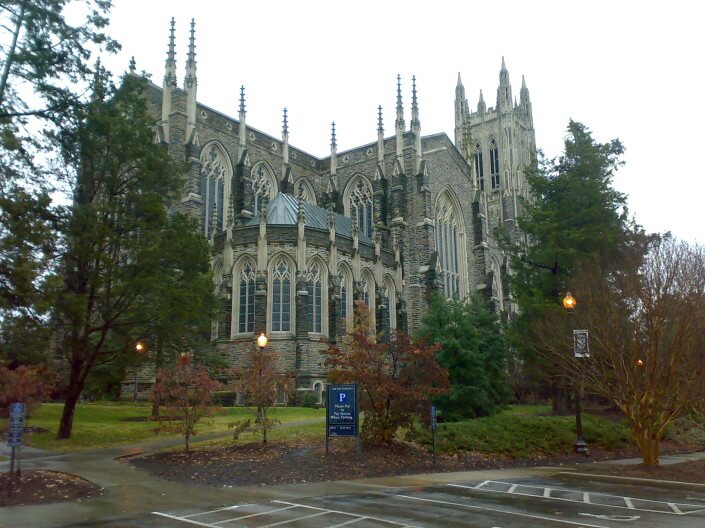By Abbie Bennett
The News & Observer (Raleigh, N.C.)
WWR Article Summary (tl;dr) With 11 medical school offers under her belt, Lily Zerihun is well on her to achieving her goal of helping people around the globe have access to quality healthcare
GREENSBORO
Lily Zerihun knows that health care is a privilege not many can afford — and she wants to dedicate her life to changing that.
Being admitted to 11 medical schools gets her off to a great start.
Zerihun, 23, of Greensboro, graduated from Duke University in 2016. Her parents emigrated to the United States from Ethiopia, and Zerihun was born soon after. She was raised with a keen understanding of how different her life was from the life she might have led if she had been born in her parents’ home country.
“Growing up I was always very aware of health-care issues in my own family, including people who had to come to the U.S. for treatment from Ethiopia,” she said. “Or people who, if they lived in the U.S., could have been treated, but had to go without.”
In the back of her mind, Zerihun wanted to have a role in alleviating the imbalance in global health.
And it’s not just the difference between health care in the United States and in countries such as Ethiopia. It’s also the disparities right here in the United States.
“I want to work in some service capacity,” she said. “Being able to directly impact communities in the U.S. and around the world that don’t have access to health care — I want to be someone who makes a difference in that.”
Zerihun is already on her way to accomplishing that with her 11 medical school offers.
The application process is long and arduous, and each decision was heart-stopping. When Zerihun got her very first decision — from Wake Forest University — she even made a friend open the email for her.
“I was too afraid,” she said, laughing. “It didn’t really sink in … I just thought, ‘I’m really going to be a doctor.'”
As more and more decisions rolled in — from George Washington University, Yale, Duke, North Carolina, East Carolina, Northwestern, Mount Sinai, Emory, NYU and Columbia — Zerihun said it was a “surreal experience.”
She decided on Columbia.
Most medical school applicants are fortunate to be admitted to two schools — let alone 11.
And many are rejected from every school they apply to. Most medical schools accept less than 10 percent of all applicants.
But Zerihun says she was raised to work hard and be appreciative, especially given her parents’ background.
Her father came to the United States to further his education and give his family greater opportunities. He’s a chemist and has been a professor at North Carolina A&T; he’s one of Zerihun’s biggest inspirations.
“He’s given me the motivation to do well in school, and it’s been really valuable,” she said. “Understanding the struggles that he overcame for his education — finishing his undergrad degree during a time in Ethiopia when scholars were being killed by the government — that journey my father took and the emphasis he put on education has really made a difference for me.”
Literacy rates in Ethiopia for women are markedly lower than in the United States, and while the number of female, minority and minority female doctors in the United States is low, Zerihun knows she had far greater opportunities here.
“I knew I had to focus on my education to give back to the women in my community,” she said. “It’s a real motivating force for me.”
Zerihun said she wants her success to show women and minority students that they can achieve their dreams and enter the field of medicine, regardless of the obstacles.
“I feel like that’s what my calling is,” she said. “There’s a definite lack of representation in the field, but I’ve managed to find mentors already and that’s really inspiring for me. I hope one day I can be that for someone, too.”
Zerihun said she hoped to share her story for the next generation of students, because she knows how tough it was for her.
“Especially in the black community with such an under-representation of black doctors, I’m hoping my story can be an inspiration for people who want to go to medical school.”
Not only will Zerihun undoubtedly serve as an inspiration for U.S. students who want to follow in her footsteps, she also hopes to give back in her parents’ home country.
“That’s definitely a strong aspect of my commitment to global health,” she said. “My mother taught me the language and my cultural heritage, and I’m really thankful for that because it gives me a foundation that would allow me to go back to Ethiopia and hopefully contribute.
“I feel really strongly about giving back. I think Ethiopia could be a strong hub for health care across the African continent and on an international scale, and I’m excited to see how
I can be part of bringing that vision for Ethiopia and African health care for that undeserved population.”














































































































































































































































































































































































